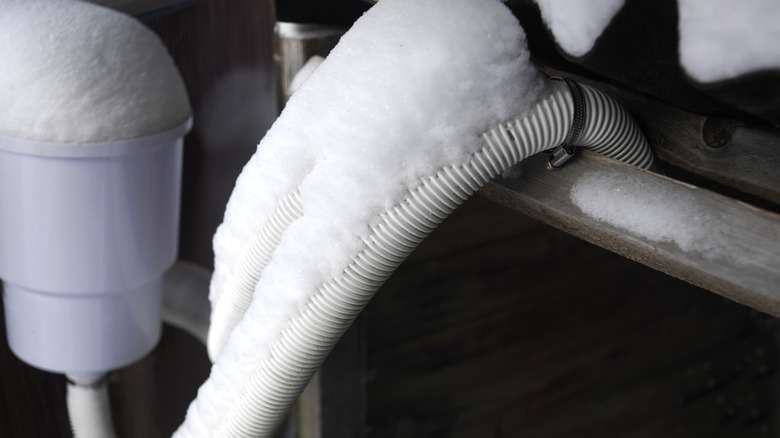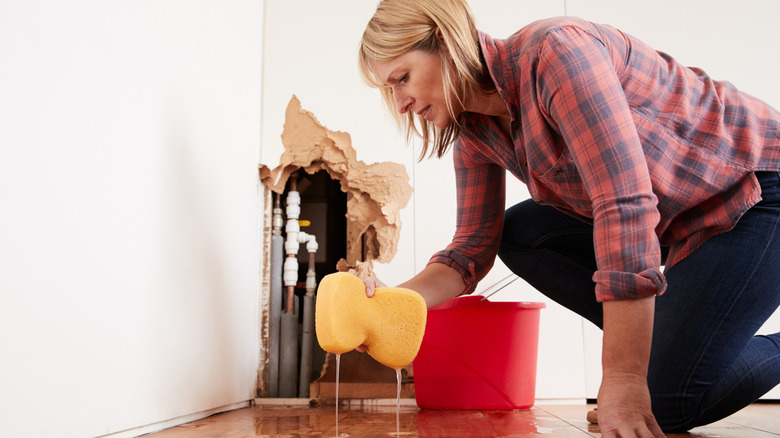The Damage Frozen Pipes Can Cause In Your Home
One of the biggest dangers homeowners face during the cold winter months is freezing pipes. Contrary to popular misconceptions, you cannot simply wait for them to thaw on their own and get back to normal. That's because when the water inside a pipe freezes, it begins to expand. This places added pressure on the pipe, which can ultimately cause it to crack or fully break open.
You're more likely to have to deal with frozen pipes when the temperature outside drops to 32 degrees Fahrenheit or lower. Once that number hits 20 degrees Fahrenheit, the risk becomes even higher. What's more, the longer the frigid temperatures last, the more likely it becomes that a pipe will burst. When that happens, it can cause serious damage in your home.
Once the running water returns, it will flow out through the damaged pipe, wreaking havoc on your surroundings. The costs of such damage can quickly add up, as you will need to repair or completely replace the pipes, as well as fix any secondary issues caused by the gushing water. Most notably, these include water damage, mold, and even electrical problems, which can cost thousands of dollars to repair.
The dangers of frozen pipes are much greater than they seem
When a pipe freezes, it's likely to burst and allow water to gush into your home. When this happens, the water supply should be shut off immediately. But even when this is done quickly, it can cause significant damage. Water is fast to infiltrate walls and get under floors, and even when everything appears to have dried from the outside, moisture can remain hidden away inside. Whether it's inside a wall, underneath a carpet, or between floorboards, a moist environment can give way to mold in just 24 hours. Not only can this cause further damage to the home's structure, but it also poses serious health risks for anyone living there.
What's more, water can easily ruin your personal belongings as well, from sentimental photos to electronics. Especially if the water is contaminated, that could also mean having to get rid of textiles and larger soaked furnishings, like sofas.
As you can see, prevention is key. You can stop pipes from freezing with help from WD-40 and good insulation. Jake Romano, manager of John the Plumber, told us in an interview about how to prevent your pipes from freezing that it also helps turn the heat up in your home and, somewhat surprisingly, keep the water running when temps drop. "Even a small stream can prevent the pipes from freezing," he explained.

